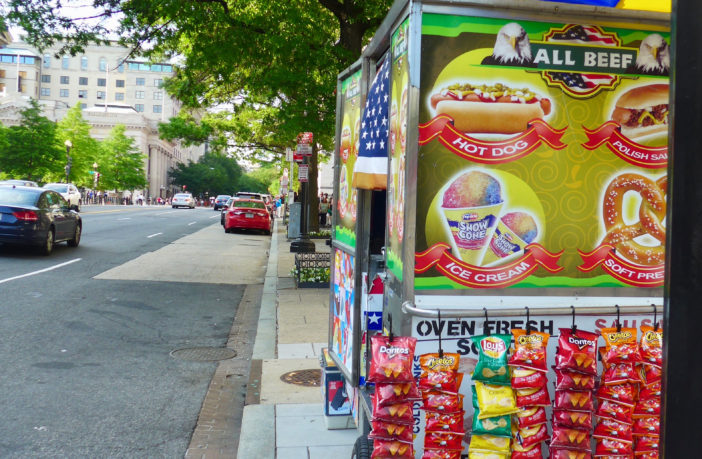Continuing her push to empower street vendors in Columbia Heights, Councilmember Brianne K. Nadeau (Ward 1) introduced legislation to formalize sidewalk vending in Ward 1. The “Sidewalk Zones Amendment Act of 2020,” co-signed by Councilmember Elissa Silverman (At-Large) and Councilmember Robert C. White, Jr. (At-Large), would “allow the Mayor to establish sidewalk vending zones for sidewalk vendors to legally operate, to establish the Columbia Heights Sidewalk Vending Zone, and to waive unpaid licensing-related civil citations for sidewalk vendors who obtain a sidewalk vending zone individual license or registers with a sidewalk vending zone manager.”
Similar to the bill she introduced over the summer that would decriminalize street vending, Councilmember Nadeau’s newly introduced legislation would exempt any violators of the law from criminal penalties. In a press release about the bill, Councilmember Nadeau said the legislation “addresses public safety through a racial justice lens.”
The bill proposes that the city issue two types of licenses, one for managers and one for individuals. The managers category includes non-profit entities or cooperatives that have multiple vendors associated with them, while the individuals category includes sole vendors.
In both cases, vendors would be required to have a basic business license or be a non-profit entity; have liability insurance; follow health and safety regulations; and pay a fee to hold the license among other requirements. The legislation also proposes amnesty for anyone who obtains one of the licenses legally, forgiving 5 years of any unpaid citations by the vendors for previous vending “violations.” Among other provisions, the bill defines “street vendor” as well as vending zones and makes other administrative clarifications.
Street vendors, who are a rich and important part of the Columbia Heights community and its culture, have been economically hit hard by COVID and DC’s early-Spring shutdown which resulted in much less foot traffic and social distancing measures. Many vendors rely on their sales to make ends meet and/or do not qualify for government benefits so they continued working when COVID risk was high.




